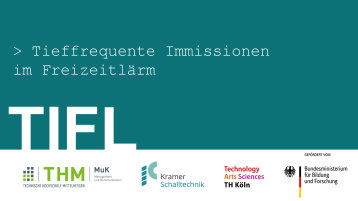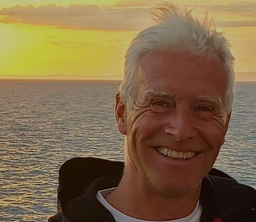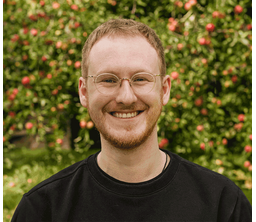Research project TIFL

Low-frequency immissions in recreational noise
For the audience of an event, it is art. For the people living in the area affected by an event, it is noise. Open-air festivals and the associated use of sound reinforcement systems at outdoor events have become part of society and cultural life. Nowadays, the resulting noise emissions usually have high energy components in the low-frequency range, since modern state-of-the-art sound reinforcement systems are capable of reproducing low frequencies with high energy components. In addition, these are emissions for which event visitors expect a certain spectral composition with signal components in the low-frequency range, which in turn are perceived as annoying by residents in the impact area. Groundbreaking studies of the past years show that especially those sounds with high signal components in the low-frequency range have been described as threatening and annoying by those affected.
Therefore, a research project on low-frequency immissions in recreational noise (in short: TIFL) is being carried out at the Technical University of Central Hesse (THM) in cooperation with the Technical University of Cologne (THK) and the industrial partner Kramer Schalltechnik. The project deals with the problem of low-frequency noise immissions at events. The general procedure according to DIN 45680, which is currently used in Germany, was designed especially for commercial and industrial noise and is unsuitable for the situation in recreational noise for various reasons. This leads to extremely serious problems in practice. The aim of the project is to develop a new specific and practicable measurement and assessment procedure for recreational noise, which is to be standardized and thus ideally can be used in the future as a basis for approval, measurement and assessment at events throughout Germany.
The research project follows two decisive approaches:
On the one hand, the THM, in close cooperation with Kramer Schalltechnik, is concentrating on the development and implementation of new measurement methods in this field as well as the collection of various scientific data. In order to derive statistical parameters, extensive immission measurements will be carried out, preferably in outdoor areas at events, and ratings from sound experts will be collected. In addition, façade insulation values in the low-frequency range must be recorded. The required measurement and evaluation routines will be implemented in a distributed measurement system developed by the industrial partner for real-time monitoring of the immission situation at events.
On the other hand, THK is concerned with psychoacoustic experiments with stimuli and constellations typical for recreational noise. For this purpose, suitable listening test environments for a perceptive evaluation by test persons are developed and set up. Here, the specific subjective characteristics of immissions in recreational noise, especially perceptibility, loudness and annoyance, will be investigated and open questions will be addressed, with the disturbance effect being the focus of the investigations. In addition, an auditory model is to be developed within the framework of the planned cooperative project.
The research associated with the project and the expected results are of high social and economic relevance, since on the one hand they serve to maintain the health of the population and on the other hand they safeguard the event industry with 1.5 million employees and the sixth largest economic sector in Germany with the creation of an urgently needed binding basis for a rule-compliant feasibility of events.
At a Glance
| Category | Description |
|---|---|
| Research project | TIFL - Low-frequency immissions in recreational noise |
| Management | Prof. Dr.-Ing Christoph Pörschmann |
| Faculty | Information, Media and Electrical Engineering |
| Institute | Institute of Computer and Communication Technology |
| Persons involved | Christoph Pörschmann, Hendrik Himmelein, Benjamin Bernschütz, Lukas Roskosch |
| Partners |
Technische Hochschule Mittelhessen Kramer Schalltechnik |
| Sponsors | BMBF (funding line for young engineers) |
| Duration | 1.9.2022 – 31.3.2027 |


